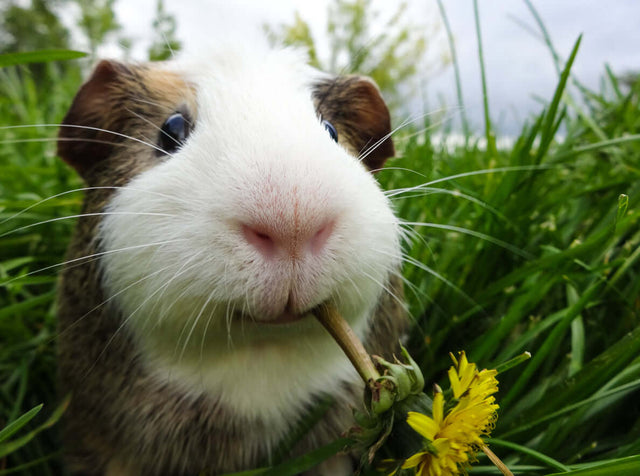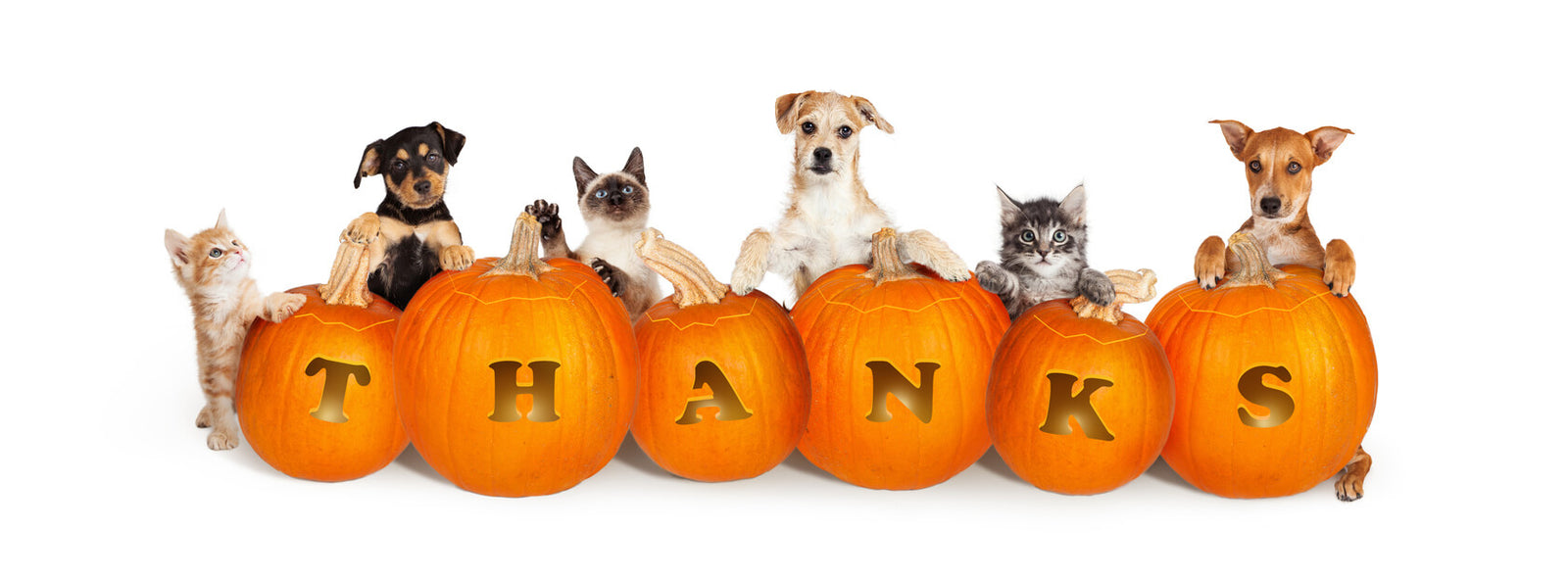The holidays are a time for gratitude, family, and delicious feasts, but many traditional Thanksgiving foods can be dangerous for pets. From sneaky scraps under the table to accidental spills, it’s essential to know which foods to keep away from your furry family members. Here’s a breakdown of the top foods to avoid for dogs, cats/kittens, and rabbits this Thanksgiving.
🐾 1. Foods to Avoid for Dogs

Dogs are often our faithful dining companions, eagerly watching as we prepare the Thanksgiving feast. While it’s tempting to let them join in the festivities, several common foods pose serious risks:
Turkey Bones and Fatty Skin
The rich, fatty skin and bones from turkey can spell trouble for dogs. Cooked bones are particularly dangerous as they can splinter, leading to choking, or worse, internal injuries. Fatty turkey skin can cause pancreatitis, a painful and potentially life-threatening condition for dogs.
Stuffing and Bread Dough
Stuffing often contains ingredients like onions, garlic, and herbs, which are toxic to dogs. Onions and garlic damage red blood cells, which can result in anemia. Raw bread dough is also dangerous because it can expand in a dog’s stomach, leading to painful bloating and even alcohol poisoning as the yeast ferments.
Desserts with Chocolate or Xylitol
Chocolate is widely known as toxic to dogs, but many Thanksgiving desserts may also contain xylitol, an artificial sweetener. Even a small amount can cause a dangerous drop in blood sugar levels and lead to liver failure. To be safe, keep all sweets, especially chocolate and sugar-free items, well out of reach.
Grapes, Raisins, and Nutmeg
Grapes and raisins, found in many holiday sides, can cause kidney failure in dogs. Nutmeg, often in desserts like pumpkin pie, can lead to tremors and seizures. Stick to plain pumpkin if you want to share a treat with your pup, but avoid anything spiced.
🐱 2. Foods to Avoid for Cats and Kittens (and Rabbits too)

While cats, kittens, and rabbits might not be as notorious for stealing food as dogs, they’re still curious by nature and may nibble on dropped foods. Here are some common Thanksgiving items that are harmful to them:
Onions, Garlic, and Chives
Much like dogs, onions, garlic, and chives are highly toxic to cats and rabbits. These ingredients, commonly found in stuffing and gravy, can cause gastrointestinal irritation and damage red blood cells. If ingested, these foods can lead to lethargy, pale gums, and even difficulty breathing.
Fatty Meats and Dairy Products
Rabbits and cats have sensitive digestive systems, and fatty meats can cause significant digestive upset. Although some cats may enjoy the taste of dairy, most are lactose intolerant, and dairy products can lead to vomiting and diarrhea. Stick to cat- or rabbit-friendly treats rather than table scraps.

Alcohol and Caffeinated Drinks
Alcohol, even in small amounts, is highly toxic to cats, kittens, and rabbits. Caffeinated beverages can also overstimulate their systems, causing vomiting, tremors, and even heart issues. It’s best to keep all drinks out of reach to avoid any mishaps.
Grapes, Raisins, and Chocolate
While more commonly associated with toxicity in dogs, grapes, raisins, and chocolate are equally harmful to cats. Ingesting grapes or raisins can lead to acute kidney failure, while chocolate consumption can cause symptoms ranging from vomiting to seizures. It’s safest to keep all sweets and fruit-based dishes away from them.
🐰 3. Foods to Avoid for Small Pets like Rabbits

Rabbits are often curious about their surroundings, and while they aren’t typically food thieves, accidents happen. Rabbits have unique dietary needs, and many foods safe for humans can cause severe health issues for them.
Rich, Fatty Foods
Rabbits should avoid all rich and fatty foods. Foods like gravy, buttery vegetables, and creamy desserts can lead to gastrointestinal stasis (GI stasis), a serious condition where the digestive system slows down or stops completely. This condition is potentially fatal if untreated, so it’s crucial to keep fatty foods out of their reach.
Potatoes and Starches
Starchy foods like potatoes, bread, and stuffing can upset a rabbit’s digestive system, causing bloating and discomfort. Rabbits thrive on fiber-rich foods like hay and leafy greens, so avoid offering them any starchy or carb-heavy items.
Sugary Treats and Fruit-Based Sauces
Rabbits are highly sensitive to sugar, which can lead to digestive issues and dental problems. Sugary items like cranberry sauce and marshmallow-covered yams may seem harmless, but they’re far from suitable for rabbits. Stick to rabbit-safe veggies if you want to include your bunny in the festivities.
Final Thoughts: Keeping Pets Safe During Thanksgiving
During Thanksgiving, it’s easy for pets to feel left out, but keeping them safe is essential. While many foods are off-limits, you can always prepare pet-safe treats or offer small amounts of plain foods like plain, cooked pumpkin for dogs or leafy greens for rabbits.
Taking precautions to prevent accidental ingestion of harmful foods will help ensure a safe and happy Thanksgiving for everyone, including your furry companions!
References
- ASPCA (American Society for the Prevention of Cruelty to Animals)
- ASPCA’s website offers extensive resources on toxic and non-toxic foods, plants, and substances for pets, including a specific list of Thanksgiving hazards.
- ASPCA Animal Poison Control - People Foods to Avoid Feeding Your Pets
- American Kennel Club (AKC)
- The AKC provides an in-depth guide on foods that are harmful to dogs, including specific details on common Thanksgiving foods.
- AKC - Foods Your Dog Should Never Eat
- Pet Poison Helpline
- This helpline’s website includes information on toxic foods for various types of pets, organized by symptoms and common household foods.
- Pet Poison Helpline - Poison List for Pets
- Humane Society of the United States
- The Humane Society provides educational articles on pet safety around the holidays, emphasizing common foods and ingredients to avoid.
- Humane Society - How to Keep Your Pet Safe During the Holidays
- Veterinary Centers of America (VCA) Animal Hospitals
- VCA’s resources include articles on holiday safety tips for pets, including information on foods like turkey bones, grapes, and chocolate.
- VCA - Holiday Hazards for Pets
- RSPCA (Royal Society for the Prevention of Cruelty to Animals)
- The RSPCA provides guidelines on pet safety around various holiday foods and includes a list of toxic ingredients.
- RSPCA - Feeding Your Pets Over the Holidays
- FDA (U.S. Food and Drug Administration)
- The FDA offers guidelines on the dangers of xylitol and chocolate for pets, with details on symptoms and emergency response.
- FDA - Advice on Keeping Pets Safe
- National Animal Supplement Council (NASC)
- The NASC provides pet health and wellness advice, including articles on safe and unsafe holiday foods.
- NASC - Thanksgiving Pet Safety Tips
More stories

Top 10 Things to Know About Keeping Guinea Pigs as Pets


